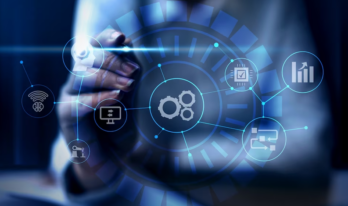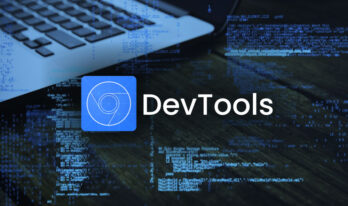With the advancement of new digital business models and growth opportunities, companies are required to re-evaluate ERP’s role.
Artificial Intelligence helps cloud ERP providers to reduce the gap legacy ERP systems fail to do.
Reducing Legacy ERP Gaps with Artificial Intelligence
Business today is successful when an ERP system is constantly being updated. That makes a huge gap between Cloud ERP platforms’ potential and where their present legacy counterparts.
Cloud platforms give additional integration choices and additional flexibility. Therefore, enhancing usability, which is one of the largest drawbacks of ERP systems.
AI and machine learning insights, Cloud ERP platforms, and apps can improve ERP systems and their contributions to business growth.
Here are the best ways to enhance Cloud ERP with AI and machine learning. Hence, bridging the knowledge gap with ERP systems:
- Cloud ERP platforms ought to produce a self-learning information system involving machine learning across all provider networks.
A cloud-based infrastructure combined with core ERP net Services and apps. Therefore, it gives a gentle stream of knowledge to AI and machine learning algorithms. As a result, to accelerate the training of the entire system creating a better business ahead.
- Virtual agents have the potential to redefine several areas of production operations, from pick-by-voice systems to advanced inspection.
Apple’s Siri, Amazon’s Alexa, Google Voice, and Microsoft Cortana have the potential to change to contour operations tasks and processes, providing direction to complicated tasks.
- Design in the Internet of Things (IoT) support at the data structure level. Hence, to realize quick wins as data collection pilots go live and scale.
Cloud ERP has the ability to capitalize on huge data efficiently. Providing IoT-based data to AI and machine learning apps regularly will reduce the intelligence gap most companies face today as they look forward to new business models.
- AI and machine learning provide insights into how Overall Equipment Effectiveness (OEE) needs improvements that are not visible today.
Manufacturers will welcome the opportunity to have a better understanding of how they can manage OEE performance across their shop floors.
A Cloud ERP platform is a continuous learning data system that, at any period of time, observes information from machinery and production assets to produce essential information in areas that lack improvement in the business.
- With machine learning algorithms in track-and-traceability, we can predict the suppliers to possibly be of the best or lowest quality.
Machine learning algorithms are best at finding patterns in diverse data sets by applying constraint-based algorithms.
Using machine learning, business owners can easily trace which supplier is the riskiest and which provides excellent quality products.
- Cloud ERP providers need to pay attention to reduce the configuration gap that exists between PLM, CAD, ERP, and CRM systems by using AI and machine learning.
The most successful product configuration strategies rely on a single, lifecycle-based view of product configurations.
AI and machine learning can modify configuration lifecycle management and avert lost time and sales. It also streamlines CPQ, and merchandise configuration strategies in the operating cycle.
- Improving demand forecasting and enabling better collaboration with suppliers based on the information from machine learning-based predictive models is attainable with better quality data.
Higher forecast accuracy is attainable by creating a self-learning knowledge system. Hence, Cloud ERP providers improve data latency rates.
Factoring in sales, marketing, and promotional programs further fine-tunes forecast accuracy.
- Reducing equipment breakdowns and increasing asset utilization by analyzing machine-level data to determine when a given part needs replacement.
Moreover, Cloud ERP providers have a great opportunity to capture machine-level data and use machine learning techniques to find patterns in production performance by using a production floor’s entire data set.
- Implementing self-learning. Algorithms that use production incident reports to predict production issues on assembly lines need to happen in Cloud ERP platforms.
Rising product quality by having machine learning algorithms combine, analyze, and frequently learn from provider scrutiny, internal control, Return Material Authorization (RMA), and product failure knowledge.
Cloud ERP platforms are in a very distinctive position of having the ability to scale across the whole lifecycle of a product and capture quality knowledge from the provider to the client.
Hence, with legacy ERP systems, manufacturers most frequently trust an analysis of scrap materials by kind or cause, followed by RMAs.
It’s time for all the businesses to get to the truth about why products fail and how machine learning can deliver the insights to get an improved business.
You may also like to read:




